New Delhi – The prestigious Shangri-La Dialogue 2025 became the epicenter of heightened diplomatic tensions as senior military officials from India and Pakistan engaged in a war of words that reflected the deteriorating security situation in South Asia. The annual defense summit in Singapore witnessed unprecedented exchanges between Chief of Defence Staff General Anil Chauhan and Pakistan’s Joint Chiefs of Staff Committee Chairman General Sahir Shamshad Mirza.
Setting the Stage at Shangri-La Dialogue 2025
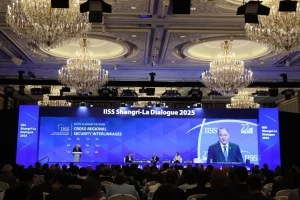
The Shangri-La Dialogue 2025 provided a unique backdrop for these critical discussions, with both military leaders participating in simultaneous sessions covering defense innovation solutions and regional crisis-management mechanisms. The geographical proximity of their conference rooms at the Shangri-La Singapore mirrored the complex relationship between these neighboring nations, making the Shangri-La Dialogue 2025 a crucial platform for diplomatic engagement.
During the three-day summit running from Friday to Sunday, the Shangri-La Dialogue 2025 attracted global attention as regional security concerns took center stage. The event highlighted how the Shangri-La Dialogue 2025 serves as more than just a defense forum—it represents a critical venue where regional powers address their most pressing security challenges.
India’s Red Line Declaration at Shangri-La Dialogue 2025


General Anil Chauhan’s address at the Shangri-La Dialogue 2025 marked a significant escalation in India’s strategic messaging. Referencing Operation Sindoor against Pakistan, he declared that India had established “a new red line of intolerance against terror.” This statement at the Shangri-La Dialogue 2025 represented a departure from previous diplomatic rhetoric, signaling India’s reduced tolerance for cross-border terrorism.
Also Read: Amit Shah Jammu Kashmir Visit: Amarnath Yatra Critical Security Review
The Indian CDS emphasized during the Shangri-La Dialogue 2025 that the recent military operation should serve as a lesson for adversaries. “We have been subjected to this proxy war of terror for almost two decades and more, and we lost lot of people…we want to put an end to it,” Chauhan stated, making it clear that the Shangri La Dialogue 2025 platform would be used to communicate India’s firm stance.
Chauhan’s remarks at the Shangri-La Dialogue 2025 specifically highlighted how Operation Sindoor represented India’s evolving security doctrine. The military domain operation, as discussed at the Shangri La Dialogue 2025, demonstrated India’s willingness to take decisive action against terrorist infrastructure across the border.
Pakistan’s Counter-Response at Shangri-La Dialogue 2025
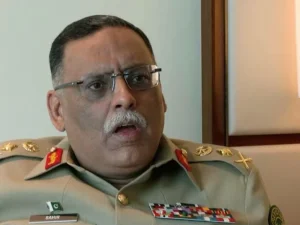

Pakistan’s General Sahir Shamshad Mirza used the Shangri-La Dialogue 2025 platform to present a contrasting narrative, emphasizing conflict resolution over military action. His address at the Shangri-La Dialogue 2025 focused on moving beyond conflict management toward comprehensive resolution mechanisms that could ensure sustainable peace in South Asia.
During his panel discussion at the Shangri-La Dialogue 2025 titled “Regional Crisis-Management Mechanisms,” Mirza warned about the dangers of escalation. The Pakistani general’s presentation at the Shangri-La Dialogue 2025 stressed that “the absence of a crisis management mechanism may not give enough time to the global powers to intervene and affect cessation of hostilities.”
Mirza’s statements at the Shangri-La Dialogue 2025 repeatedly returned to the Kashmir issue, describing it as the core dispute between Pakistan and India. His address at the Shangri-La Dialogue 2025 called for early resolution of Kashmir “in line with the UN Security Council resolutions and as per the aspirations of the people” for achieving enduring peace in South Asia.
Operation Sindoor: The Catalyst for Shangri-La Dialogue 2025 Tensions
The backdrop to these exchanges at the Shangri-La Dialogue 2025 was India’s Operation Sindoor, launched on May 7 to destroy nine terror infrastructures in Pakistan and Pakistan-occupied Kashmir. This operation, which became a focal point of discussions at the Shangri-La Dialogue 2025, was India’s retaliation against the April 22 Pahalgam terror attack that killed 26 people.
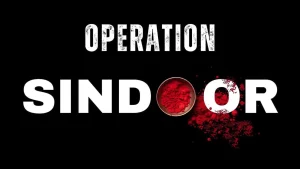

The four-day military conflict that ended on May 10 significantly influenced the tone of discussions at the Shangri La Dialogue 2025. While New Delhi accused Pakistan-based terror groups of the deadly tourist attack, Islamabad denied any involvement, setting the stage for heated exchanges at the Shangri La Dialogue 2025.
Strategic Implications Discussed at Shangri-La Dialogue 2025
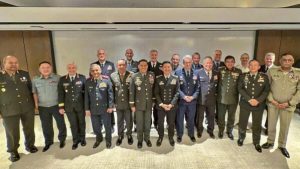

General Mirza’s analysis at the Shangri La Dialogue 2025 painted a concerning picture of regional stability. He argued that following recent military confrontations, “the threshold of strategic stability had been lowered to dangerous levels,” making the discussions at the Shangri La Dialogue 2025 particularly significant for regional security architecture.
The Pakistani general’s presentation at the Shangri La Dialogue 2025 also criticized what he termed the “emboldening of India as a net security provider by the West.” His remarks at the Shangri La Dialogue 2025 suggested that India’s regional ambitions were being disincentivized from engaging in conflict management options.
International Mediation Efforts and Shangri-La Dialogue 2025
According to discussions at the Shangri La Dialogue 2025, multiple international actors served as interlocutors during the recent crisis. Mirza claimed that the United States, United Kingdom, Turkey, China, Saudi Arabia, and the United Arab Emirates played roles as mediators, highlighting how the Shangri La Dialogue 2025 serves as a platform for acknowledging international involvement in regional conflicts.
Regional Security Architecture and Shangri-La Dialogue 2025
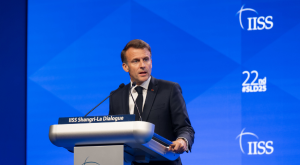

The exchanges at the Shangri La Dialogue 2025 underscored the fragile nature of South Asian security architecture. Both military leaders used the Shangri La Dialogue 2025 platform to articulate their nations’ positions on critical security challenges, demonstrating how this annual summit serves as a barometer for regional tensions.
The significance of the Shangri La Dialogue 2025 extends beyond bilateral India-Pakistan relations, as it provides insights into broader regional dynamics affecting global security interests.

Final Word: Shangri-La Dialogue 2025 as a Critical Juncture
The military exchanges at the Shangri La Dialogue 2025 represent a critical juncture in India-Pakistan relations. As both nations continue to grapple with fundamental security challenges, the Shangri La Dialogue 2025 has emerged as an essential platform for diplomatic engagement, even when that engagement involves stern warnings and red line declarations.
The outcome of discussions at the Shangri La Dialogue 2025 will likely influence regional security dynamics for months to come, making this year’s summit particularly significant for South Asian stability. As the international community watches these developments, the Shangri La Dialogue 2025 continues to serve its vital role as a forum for addressing Asia-Pacific security challenges.

